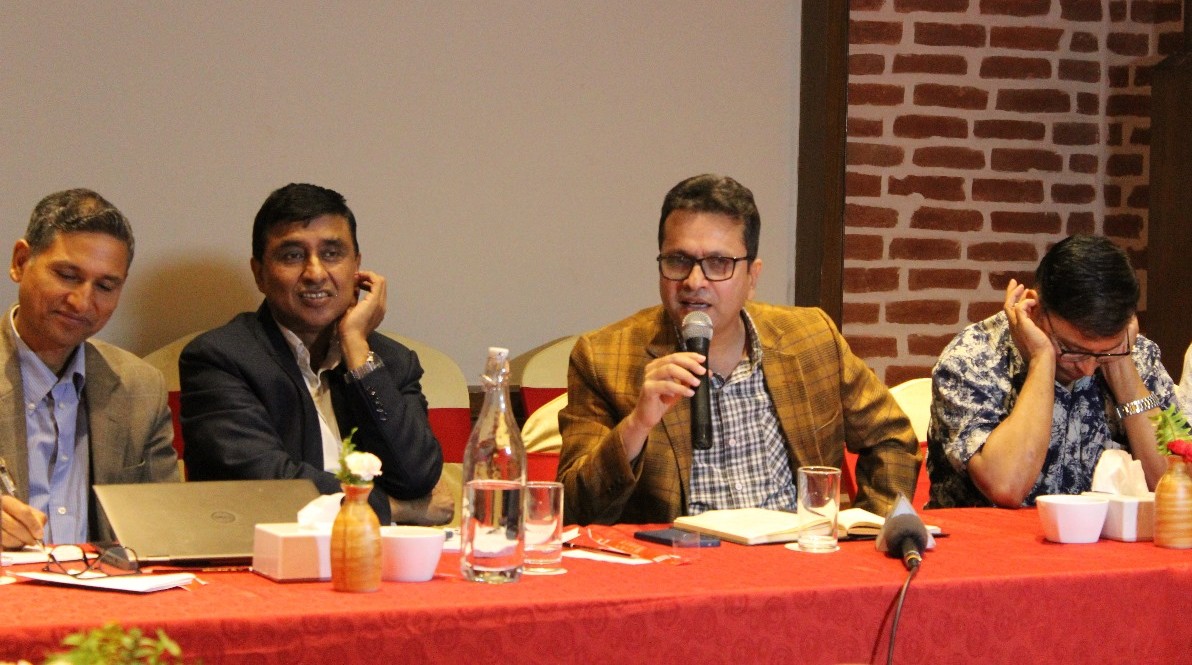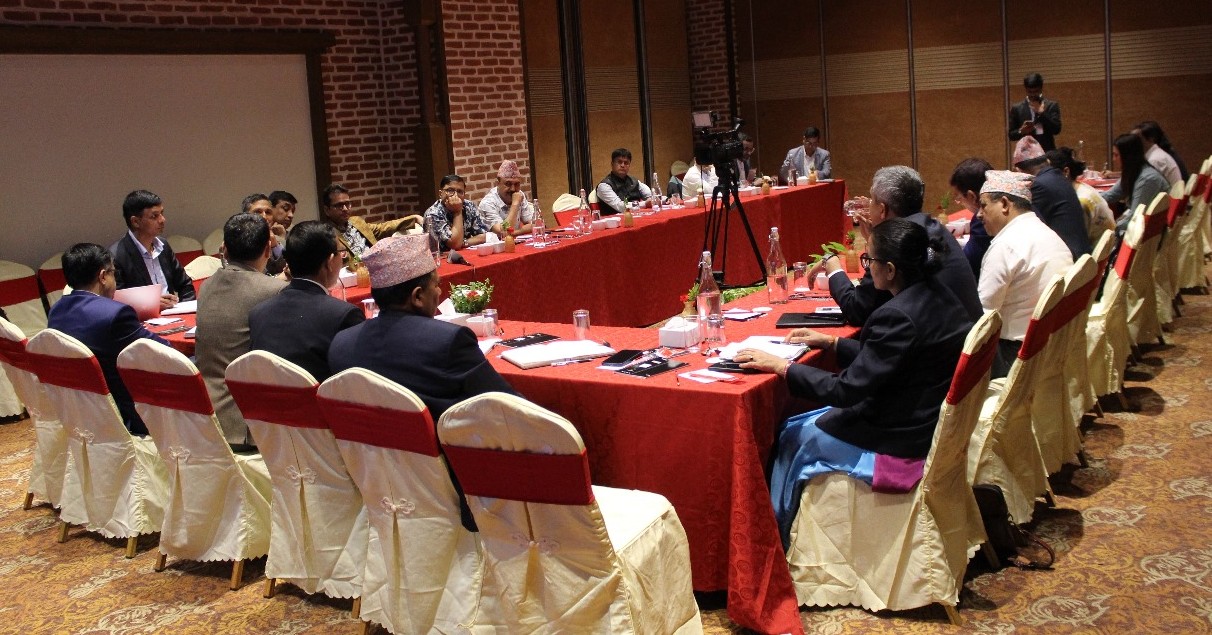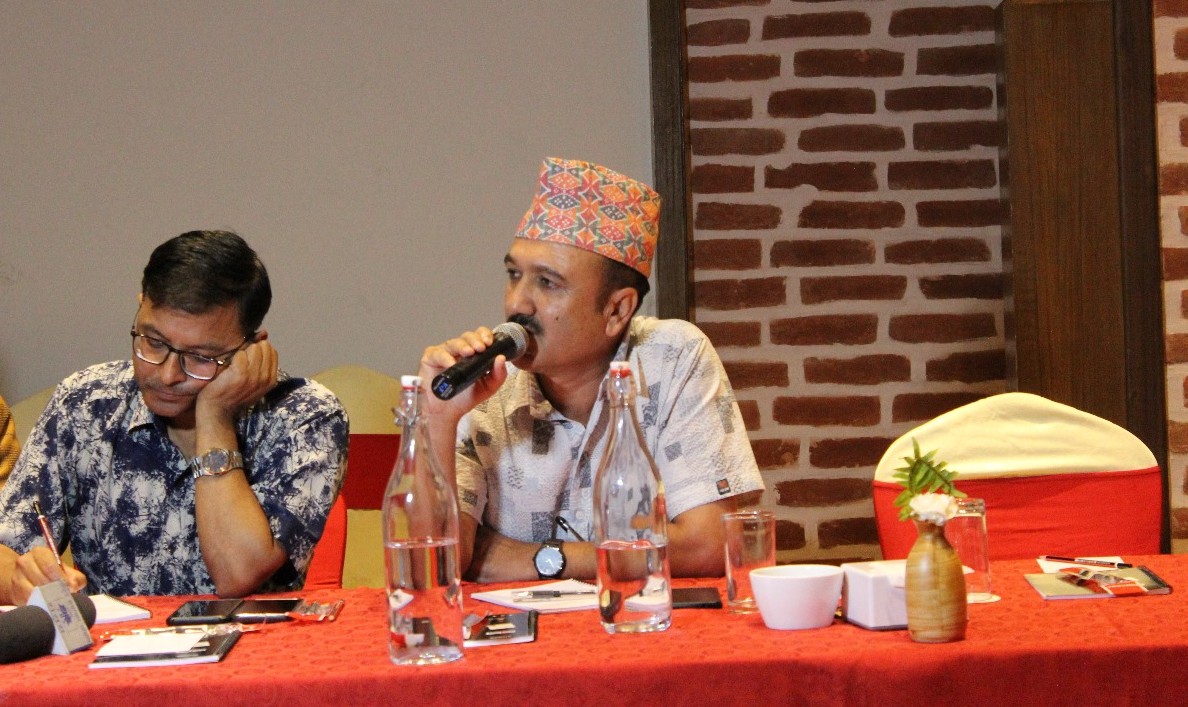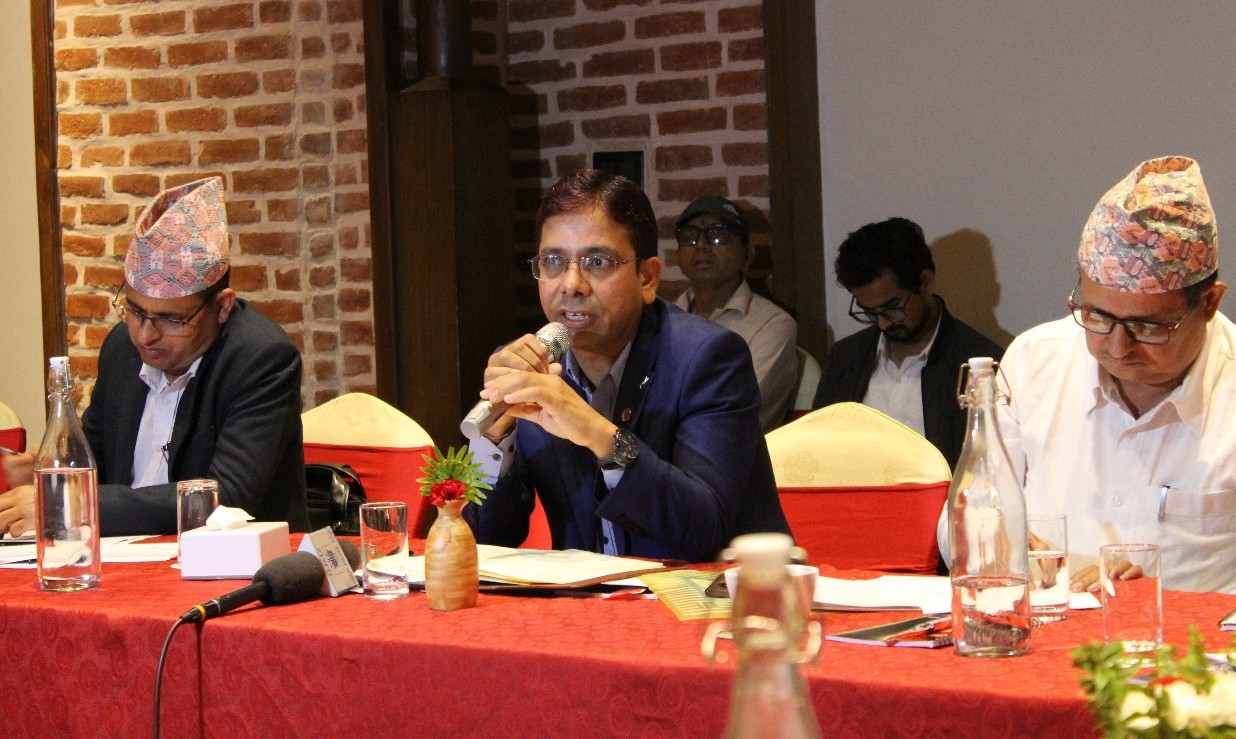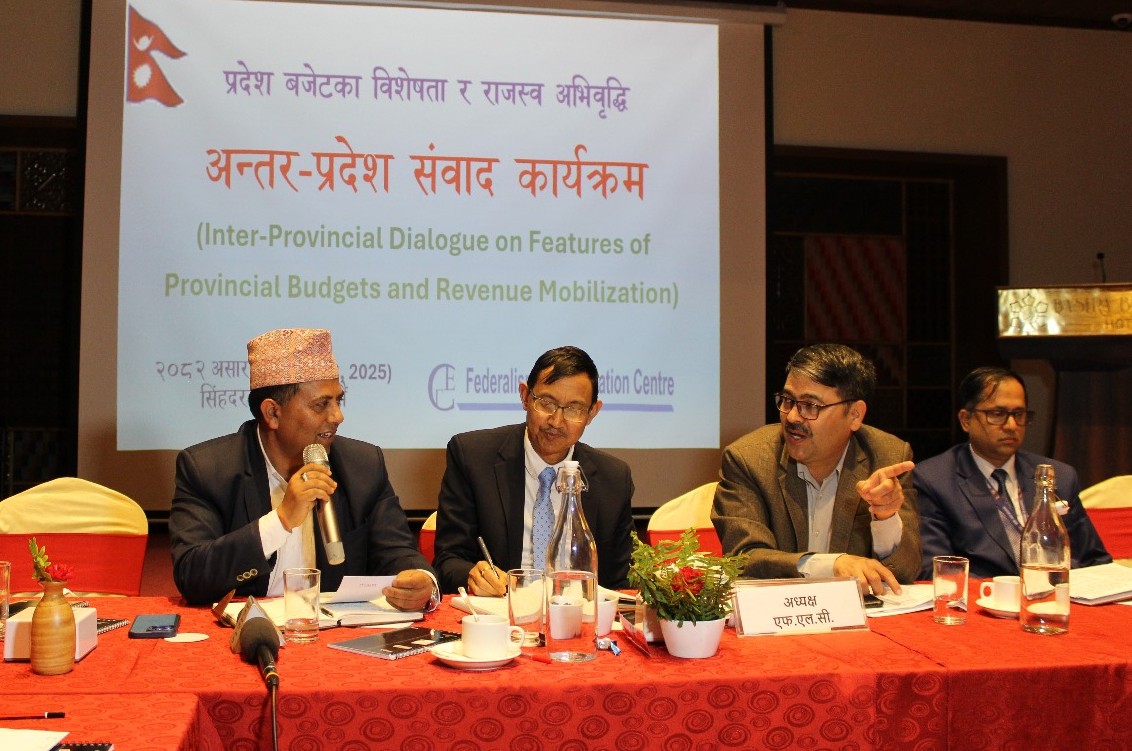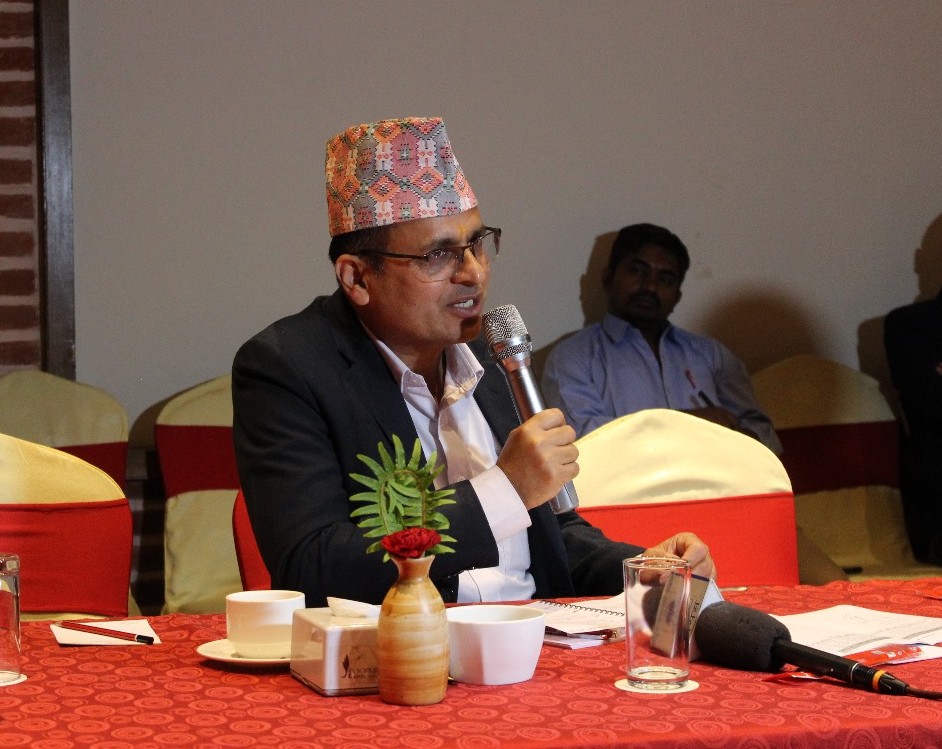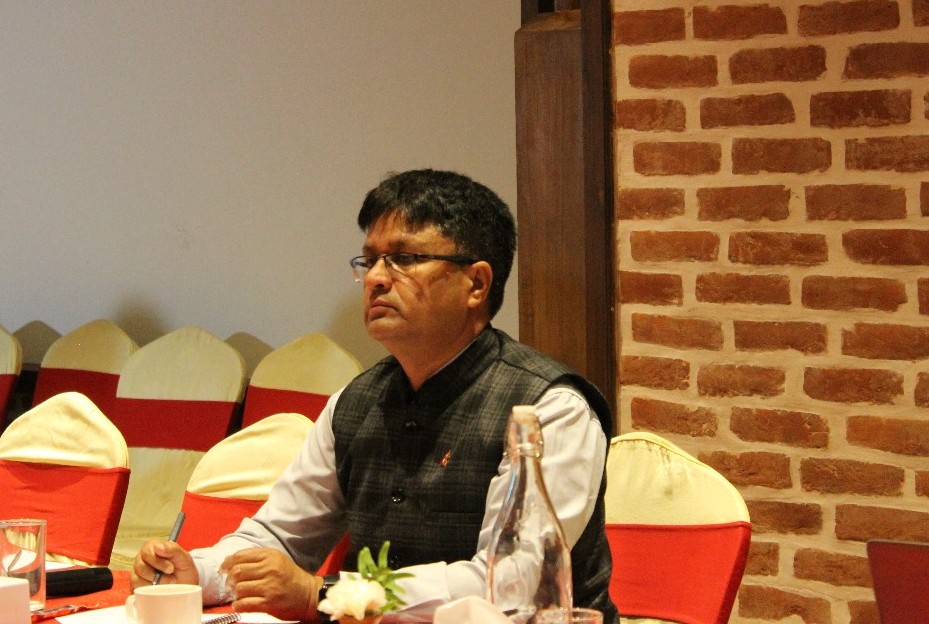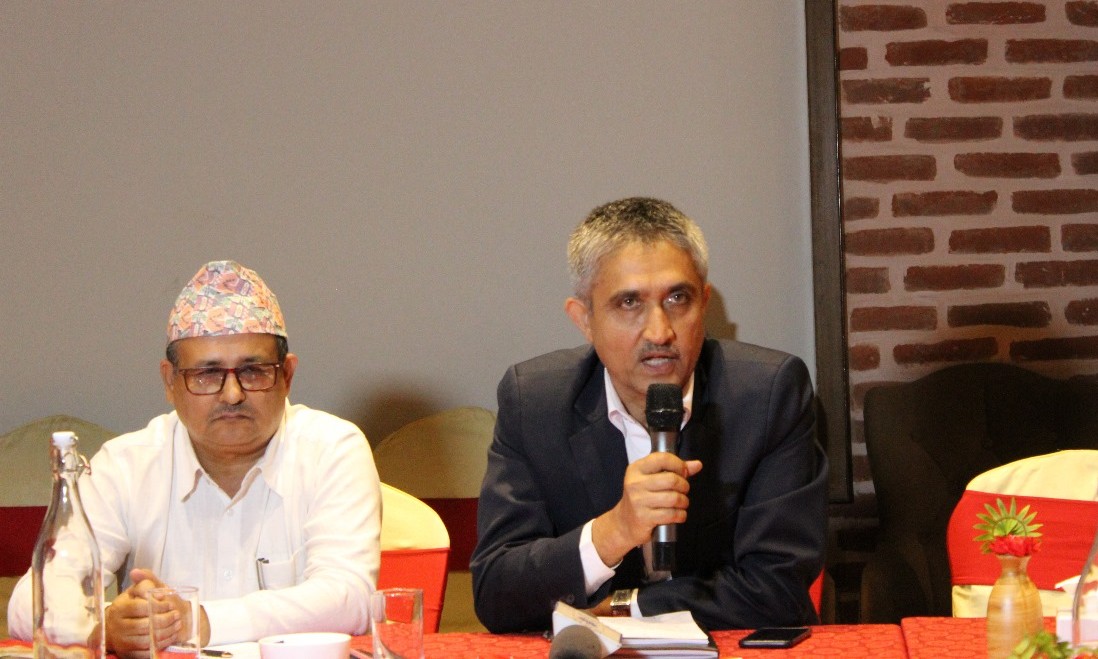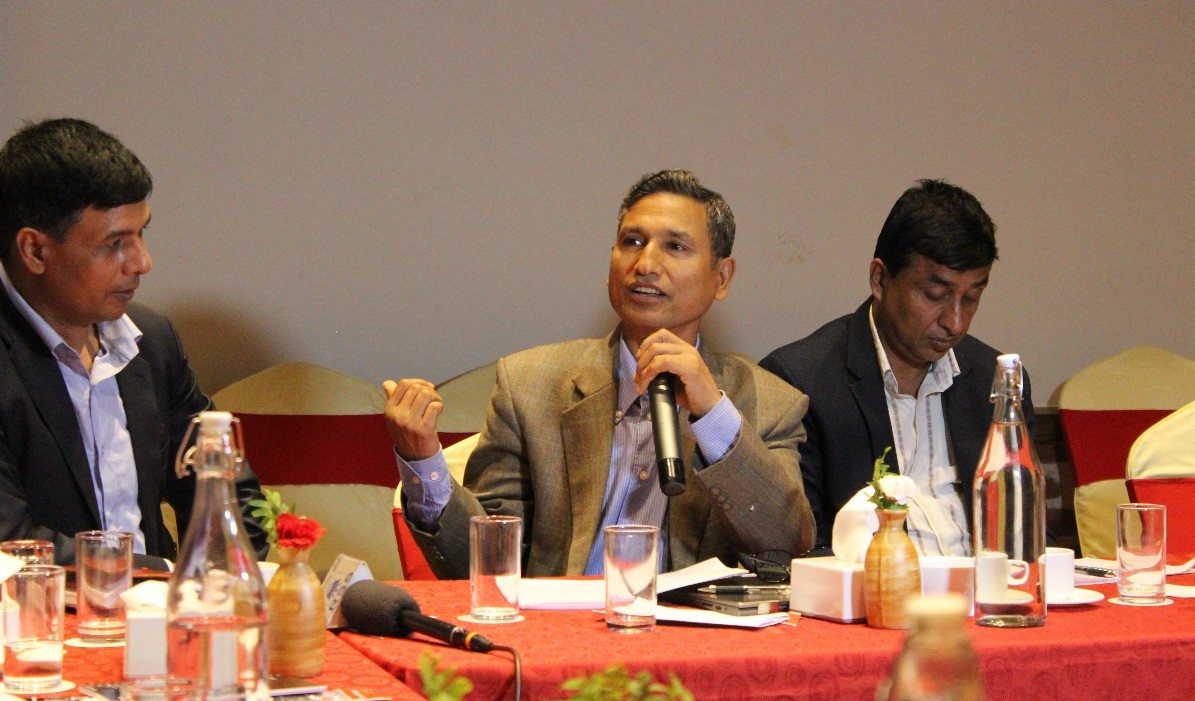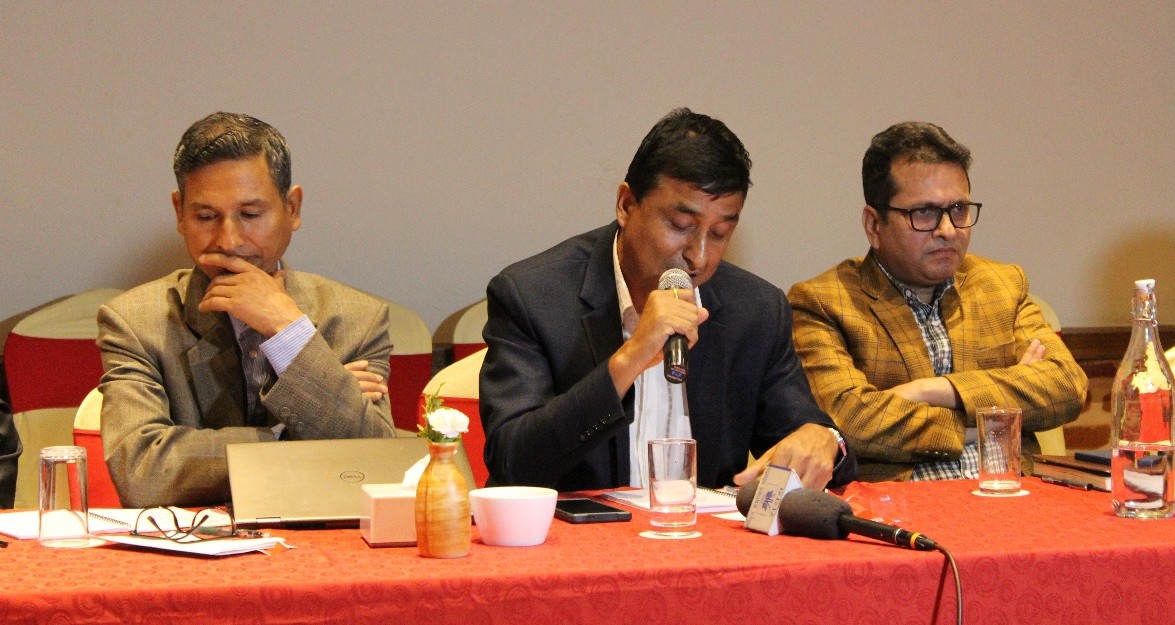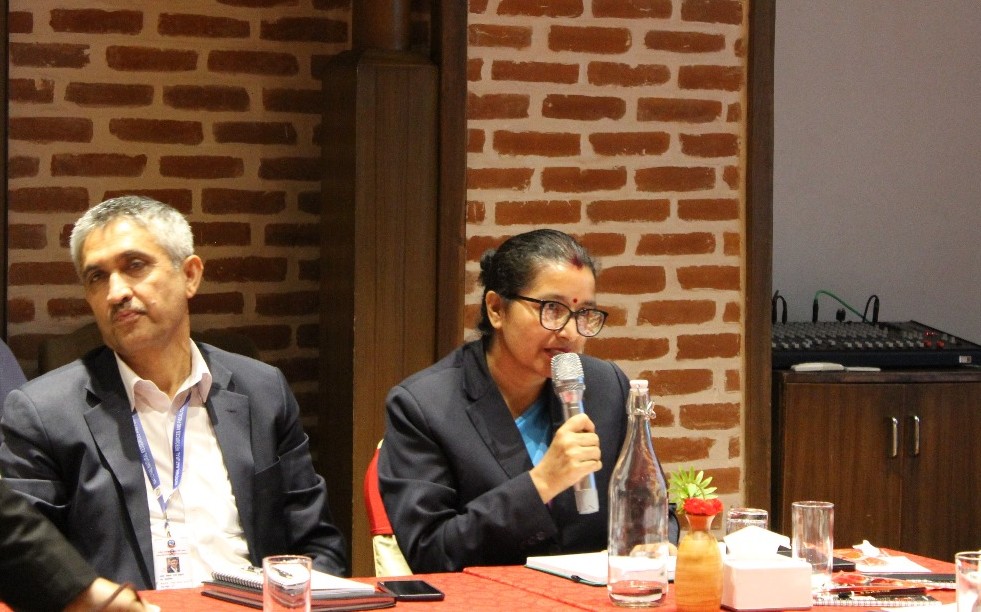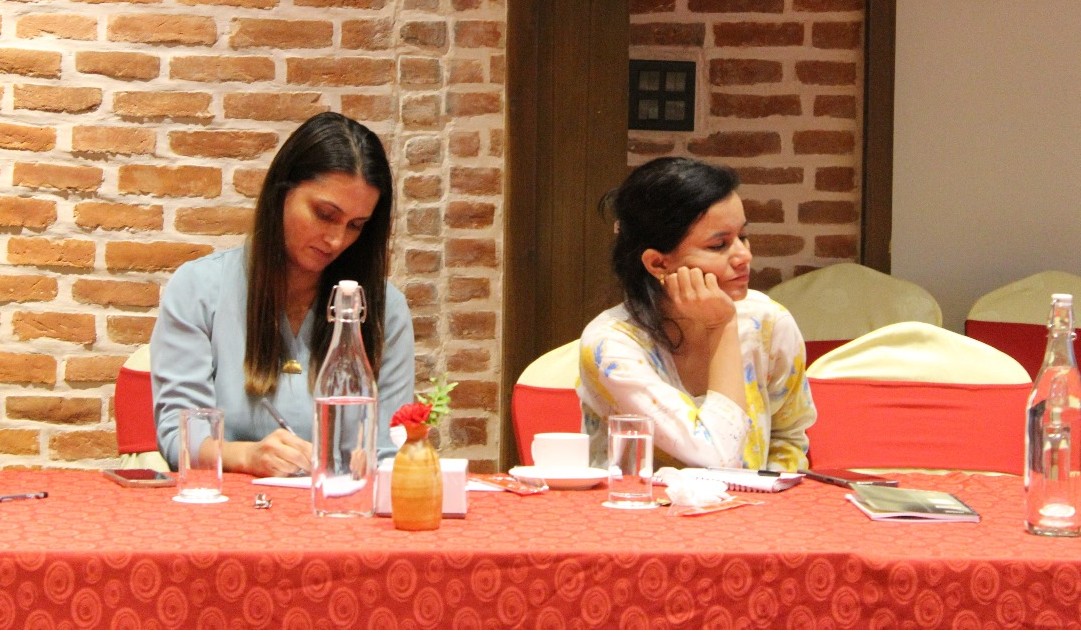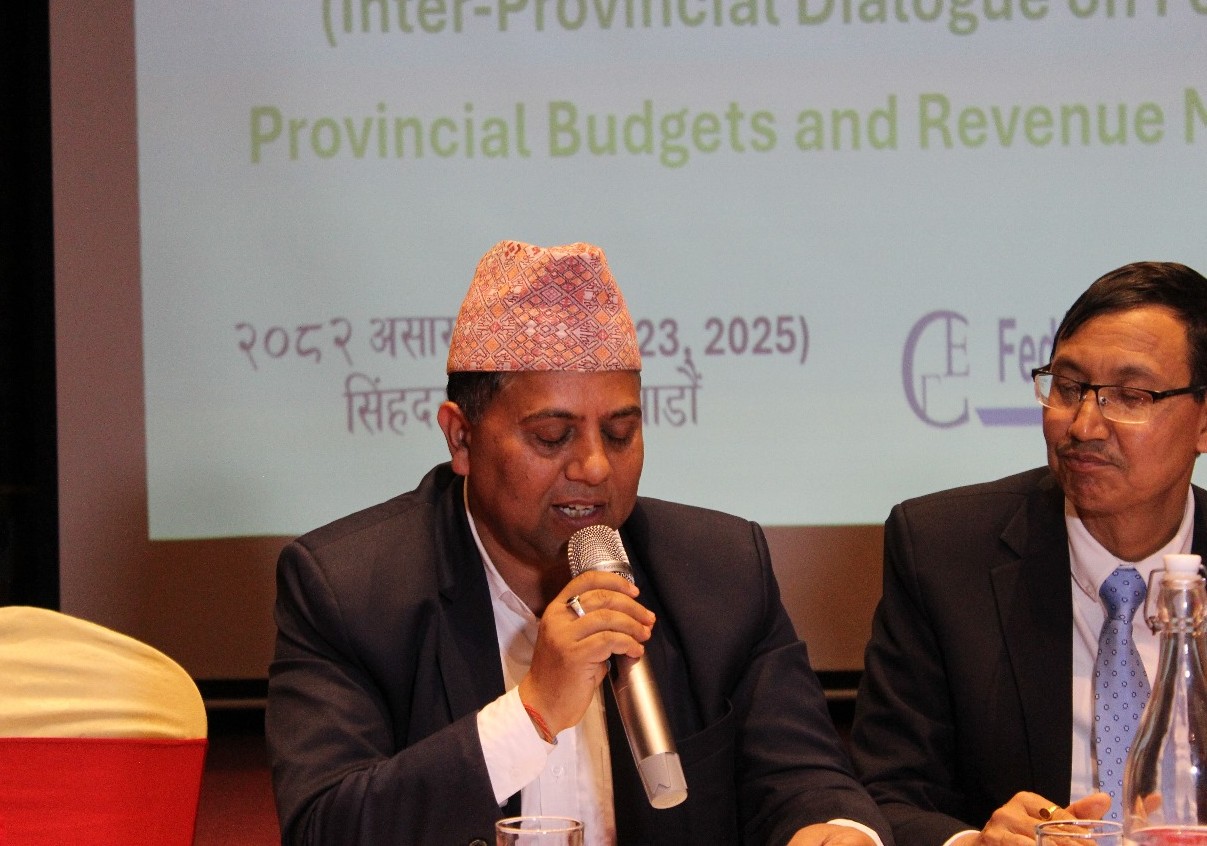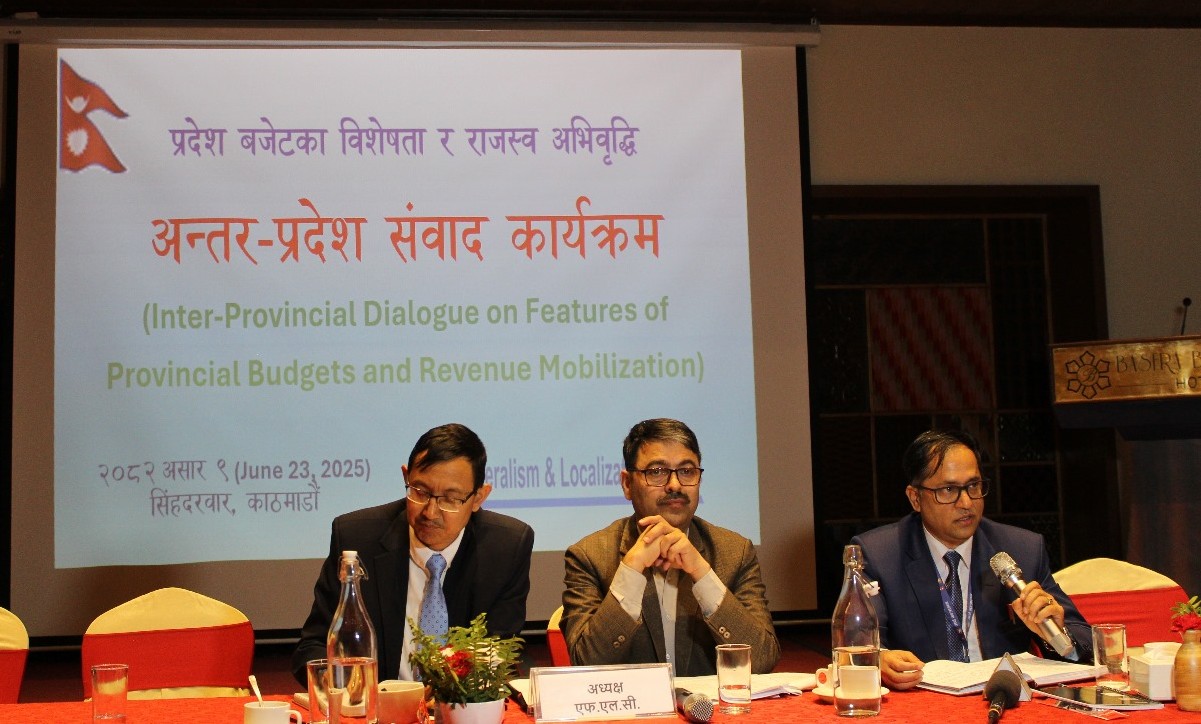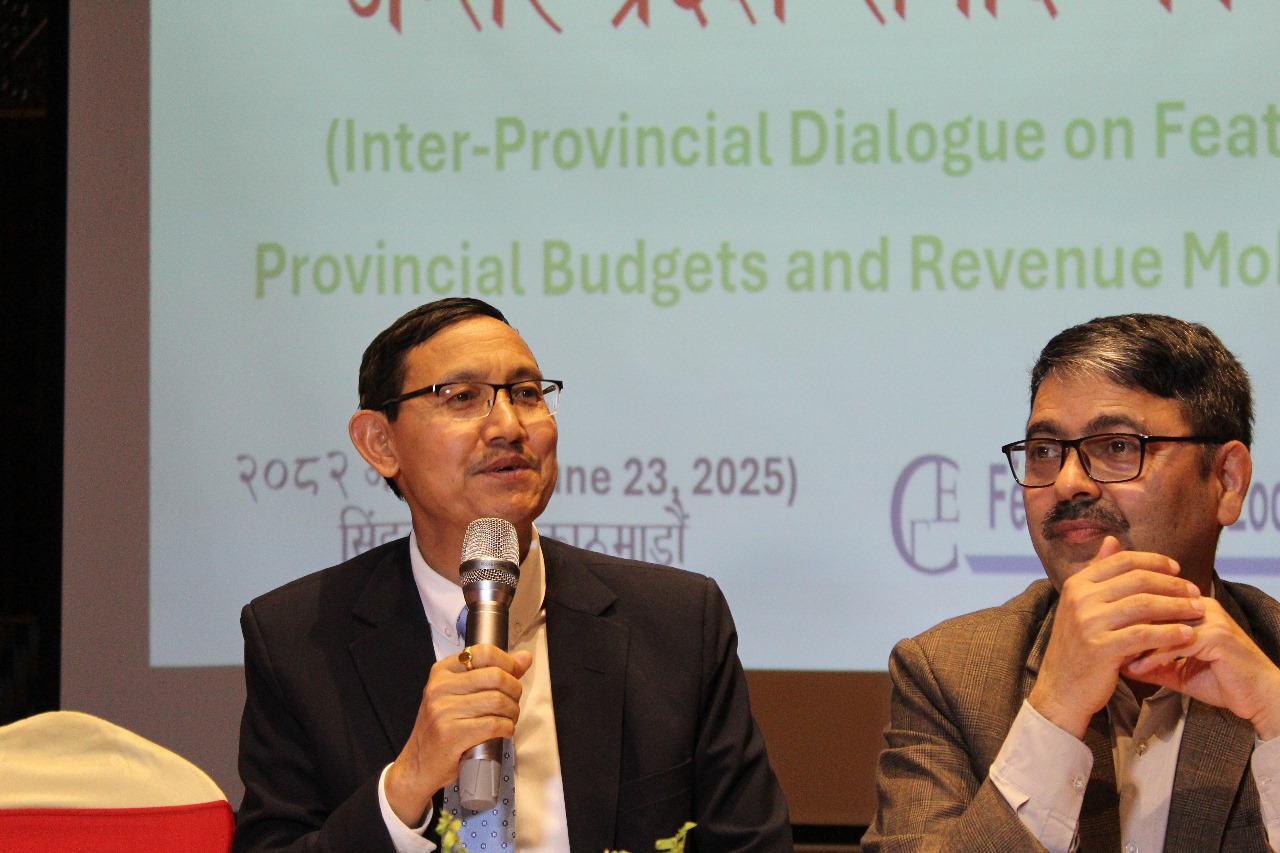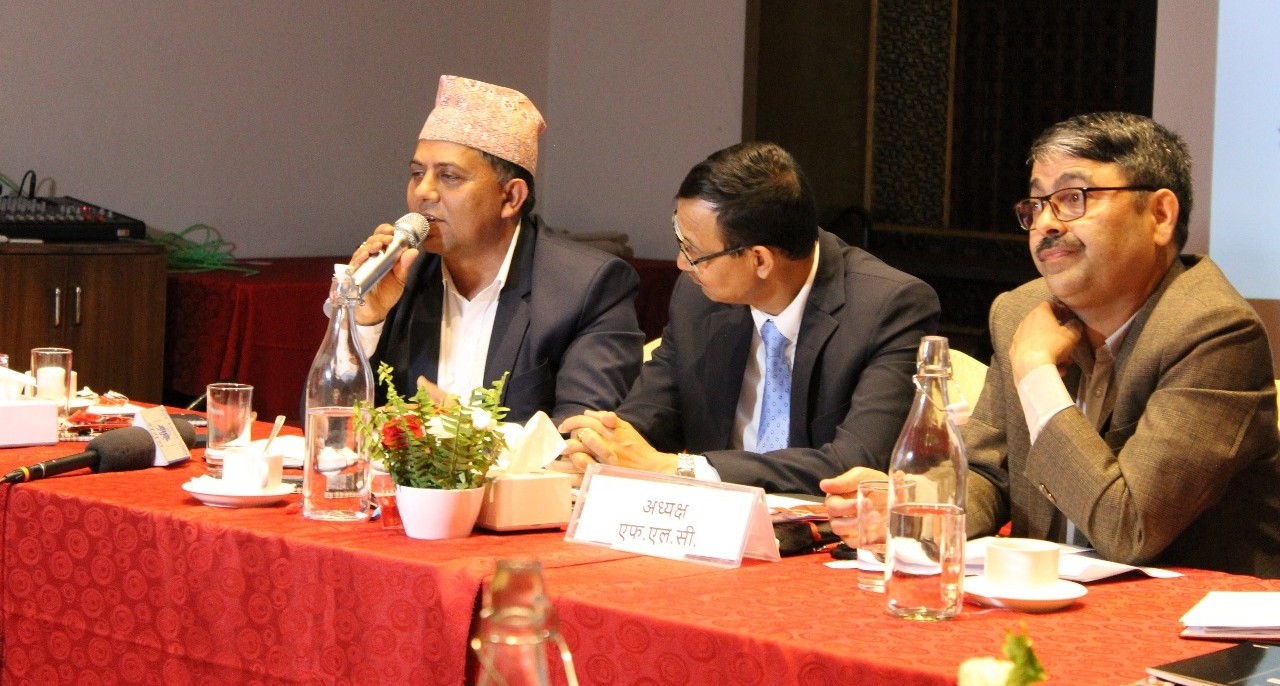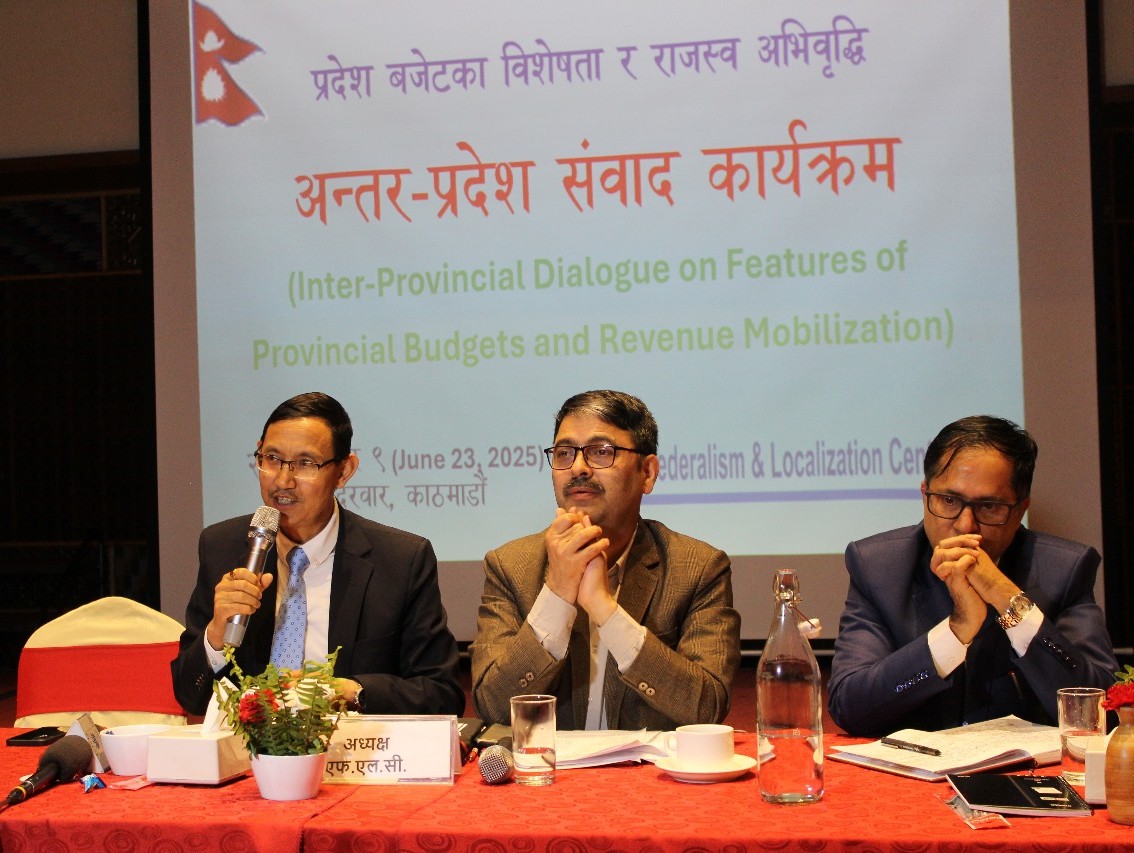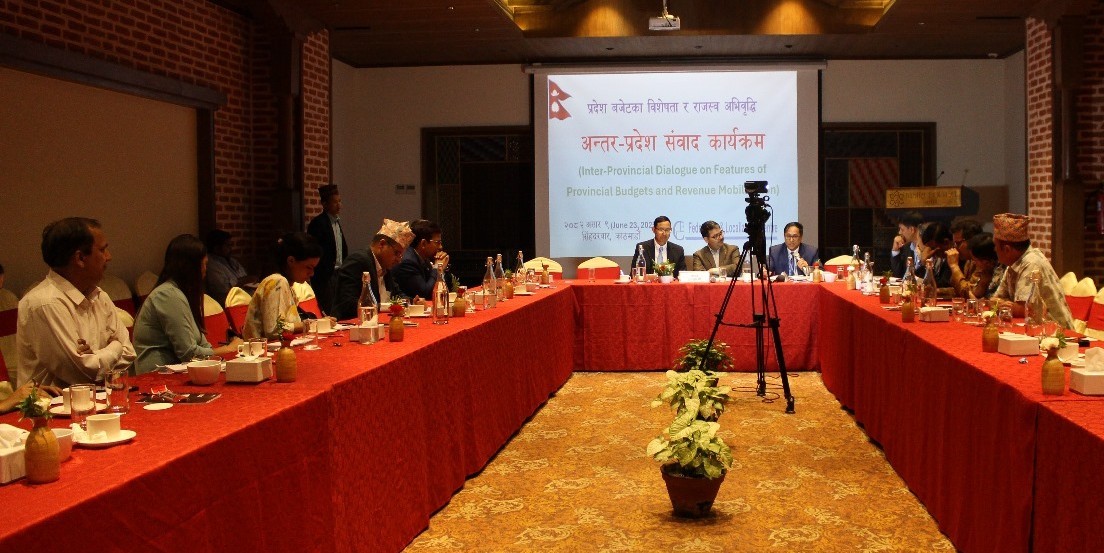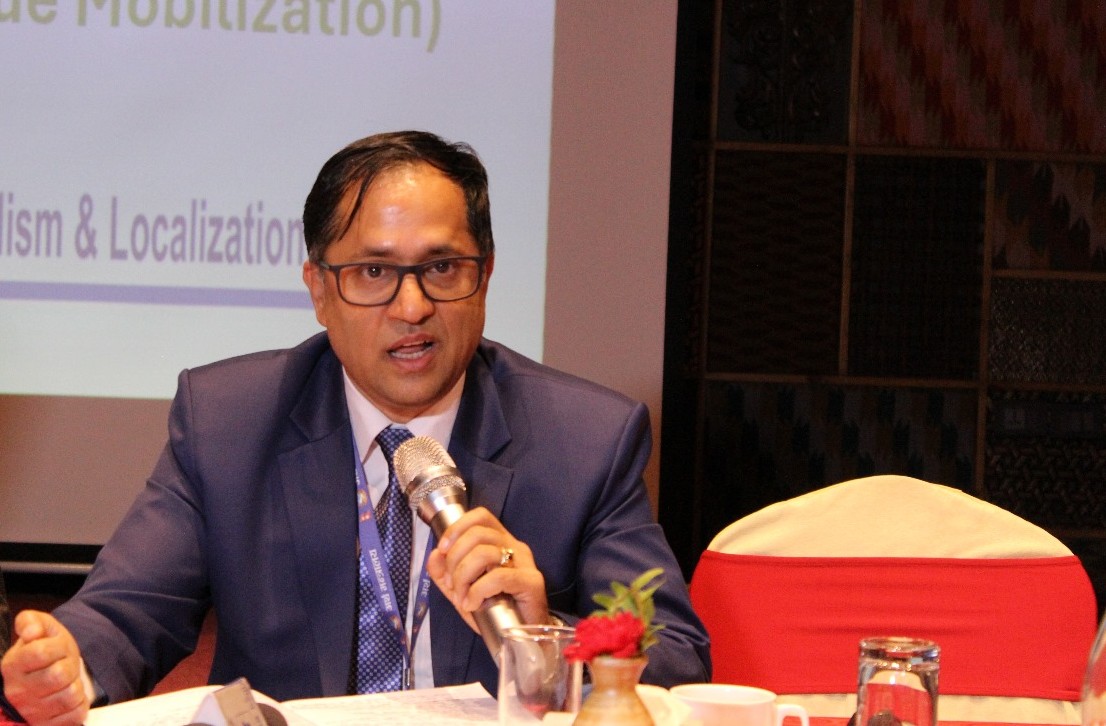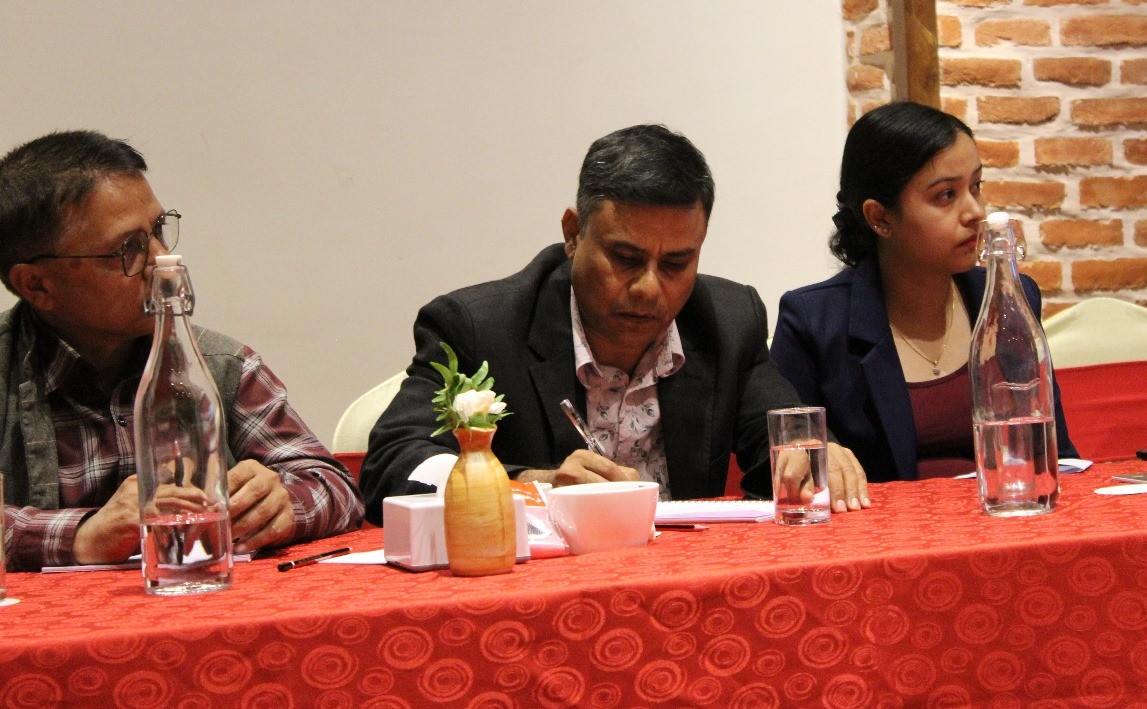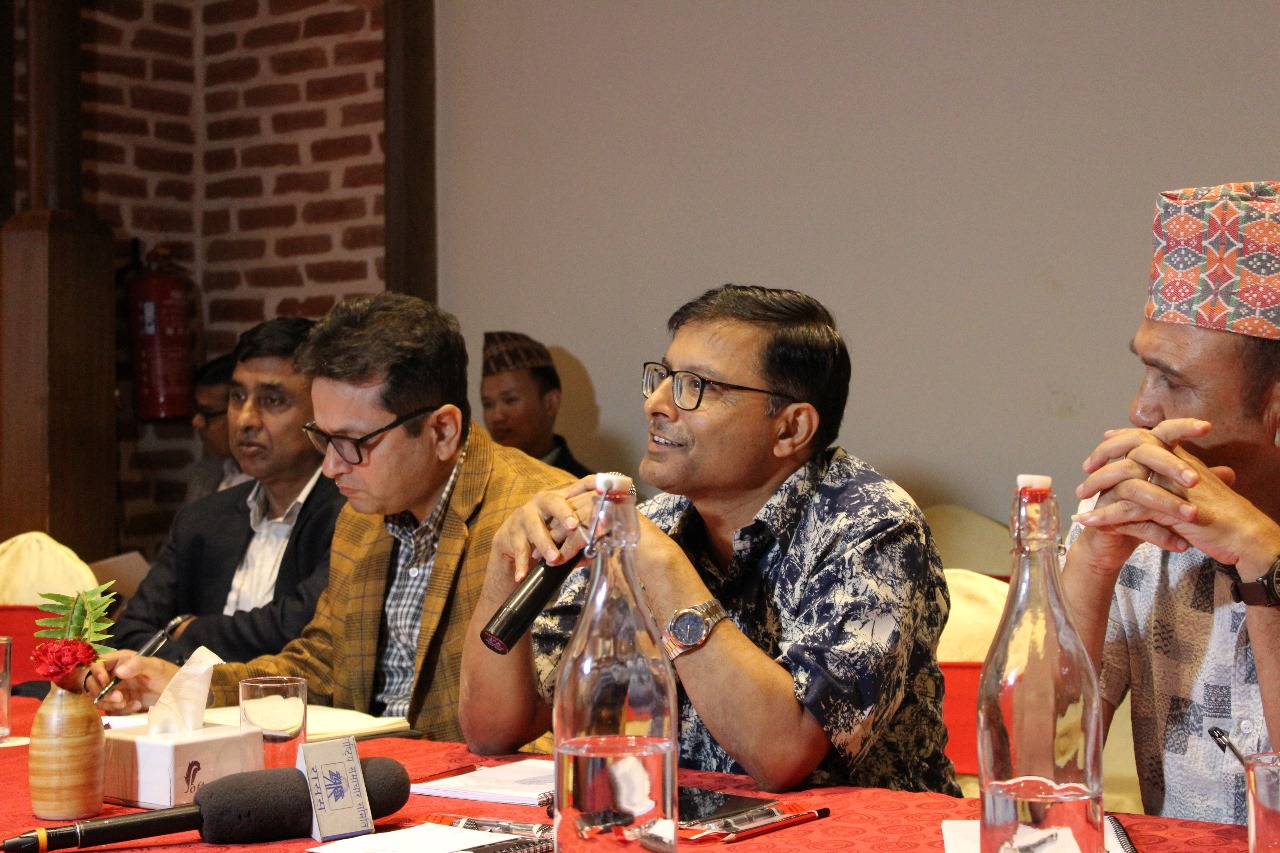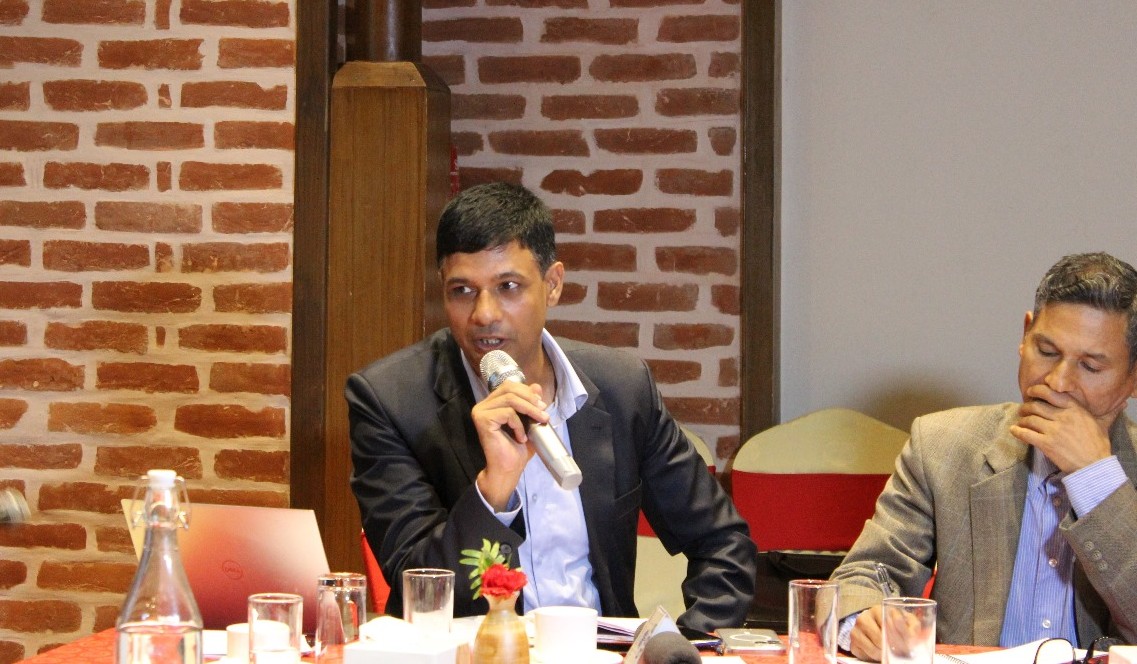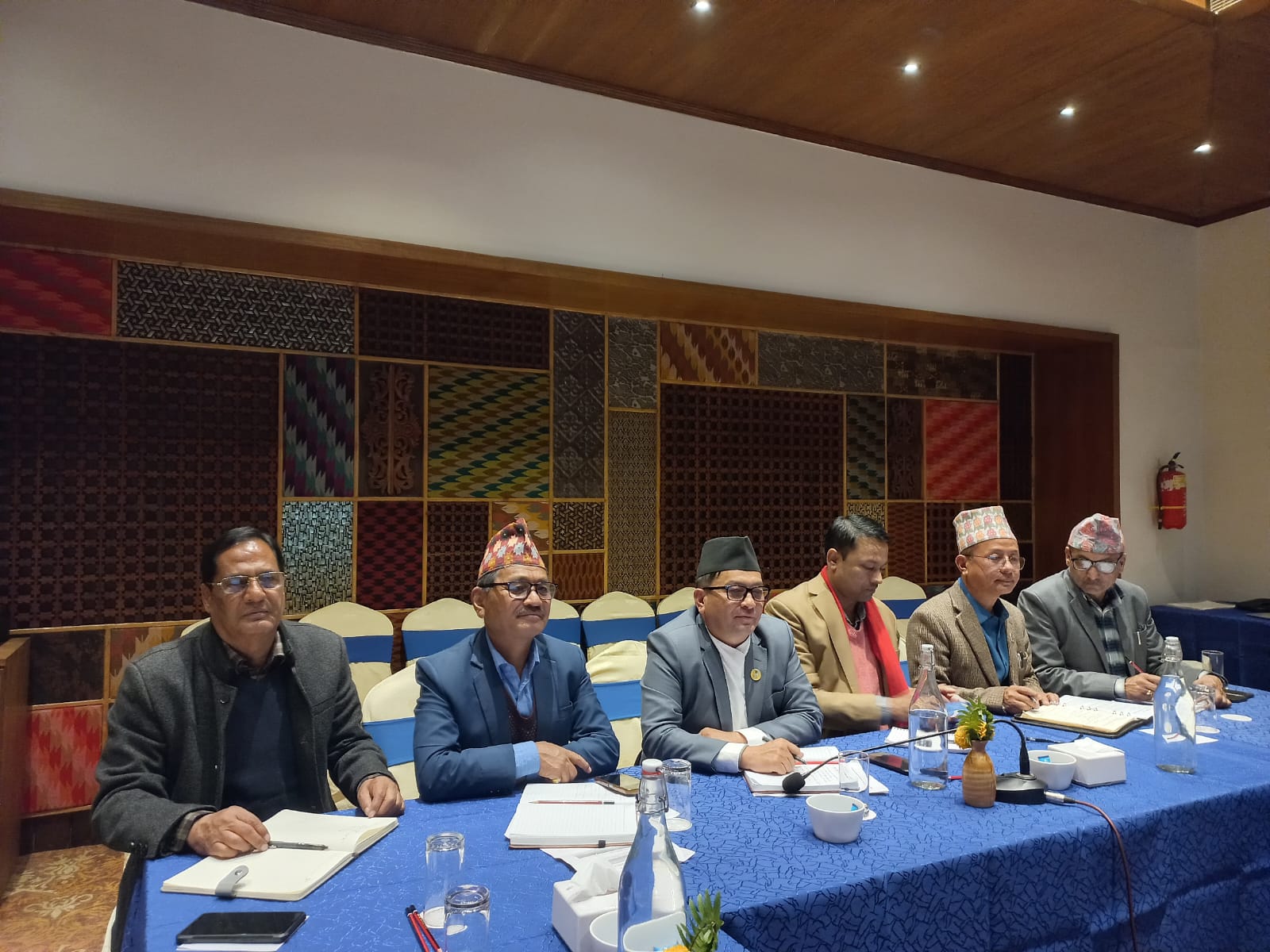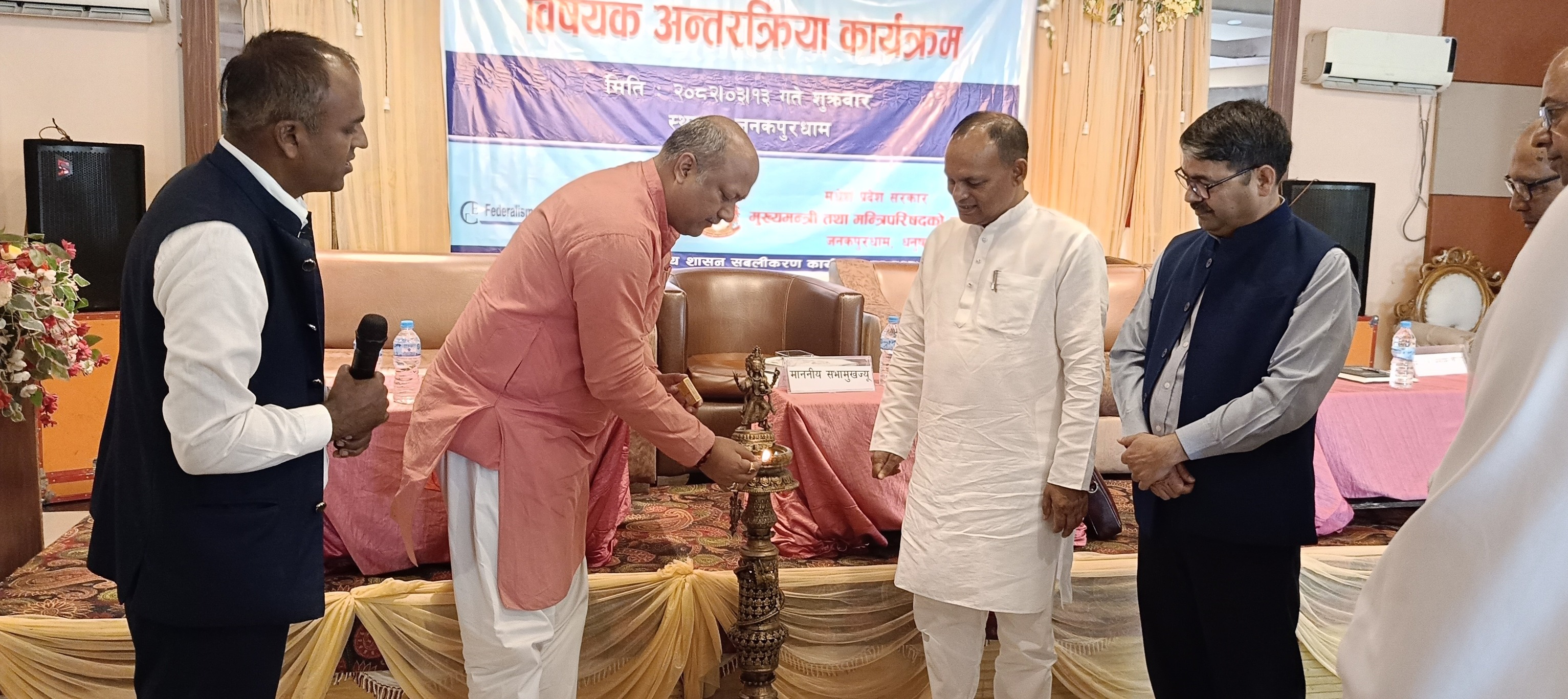Dialogue Details
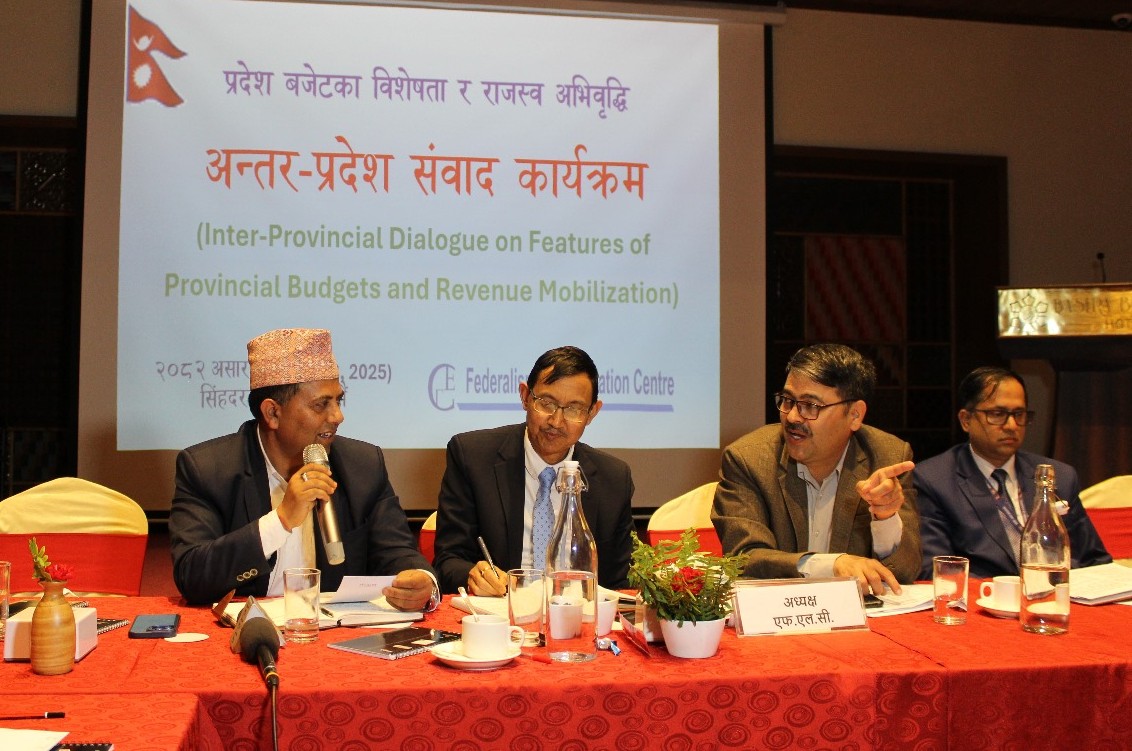
Dialogue on Provincial Post-Budget: Perspectives from the Secretaries of Finance Ministry
June 23, 2025
Federalism and Localization Center (FLC) convened a dialogue on post-budget discussion of the provincial levels where the Secretary for Federalism from the Office of the Prime Minister and Council of Ministers, the Head of the Fiscal Federalism Division at the Ministry of Finance, Joint Secretaries from the National Natural Resources and Fiscal Commission and the Ministry of Federal Affairs and General Administration, the Secretary of the Federalism Committee from the National Assembly, Secretaries from various Provincial Planning Commissions, and Chiefs of the Provincial Treasury Comptroller Offices, among others participated.
This event happens to be unique in nature as it is the first event (of around two dozen events organized so far by FLC) where it exclusively involves bureaucrats – provincial finance secretaries – to hear out their experiences and learnings of budget and policy and plan making of their respective provinces. Given that our fundamental objective is to support provincial governments through evidence-based knowledge, the experiences shared by the participants become of immense significance.
The participants provided important feedback, perspectives and lessons learned:
1. Mr. Gobinda Bahadur Karkee, Secretary Governance Affairs and Provincial Coordination Division from the Office of the Prime Minister and Council of Ministers, acknowledged that this event contributed greatly in informing him about the state of affairs of how budgets are formulated and what is at play in creating projects. The collective acknowledgment and Gandaki Province’s realization to get rid of unnecessary structures is a huge contribution of this event. He further asserted that the federal government’s claims that province’s priorities put burden on the federal government undermines the province’s priorities to pursue development projects – the federal government must look into this narrative too. He also, showed interest to collaborate with FLC in future on the issues like revising the Unbundling exercise of the three tiers of government.
2. Mr. Mahesh Baral, Head of Fiscal Federalism Coordination Division, Ministry of Finance, highlighted the biggest challenge in the budget formulation is ‘budget realism’ if we can address this we will achieve a great success in the functioning of the state in a federal scheme of things.
3. Kali Prasad Prajuli, Joint Secretary and Spokesperson of the Ministry of Federal Affairs and General Administration, requested that the issues raised here are important but this is inadequate. To make it more effective the organizers have to bring the political as well as the bureaucratic stakeholders on the table at the same time to hold everyone accountable and make it more effective.
4. Sevanta Raj Dahal, Joint Secretary, National Natural Resources and Fiscal Commission, stated that speaking does not matter anymore. I just request that please don’t cut down on equalization grants and when you intend to increase the equalization grant please factor in the Consumer Prize Index. He also flagged that the recommendations made by Fiscal commissions has not been fully implemented by the federal government.
5. Sita Kaphle Wagle, Committee Secretary, Federalism Enablement and National Concerns Committee of National Assembly, acknowledged that the National assembly is being elected from provincial level and thus has the responsibility of being more responsible and accountable towards provincial government. I will coordinate for the implementation of the issues raised here about the budget and project making in our committee.
6. Krishna Mainali, Finance Secretary, Bagmati provincial government, asserted that we need to really look into whether we should get budget on the basis of what we want or on the basis of the resources to allow us to meet the expenditures. The gap in this is the real problem that the budget formulation faces. Further, he said that if budgets are formulated in the current manner, there will be questions on the legitimacy of provincial government.
7. Dila Ram Panthi, Finance Secretary, Lumbini Provincial government, quipped “except the last 5 days we worked quite satisfactorily in formulating budget. Despite this our budget is still. Further, he highlighted that there are too many structures and offices at the provincial and district levels. We have to get rid of them.
8. Khim Bahadur Kuwar Sir, Vice Chairman, Province Planning Commission Lumbini Province, highlighted that, just using project bank is not the effective process; it is important to see how the project bank is made and what played in the making of project banks.
9. Mr. Shankar Nepal, Finance Secretary, Koshi provincial government, said, ‘I don’t think we have to be so hopeless; Project banks are sensitized. The projects worth 5 million or above are considered the provincial projects and rest are put into roster. Any project that is not in roster can not be approved. This has constrained the political expectations of putting the budgets for projects of their ad-hoc desires.
10. Rabilal Sharma, Finance Secretary, Karnali provincial government, said, ‘the provincial government has become like NGOs where LGs come to seek fund on ad-hoc basis. Political context is more or less the same in our province, too. He further lamented ‘bikas khane ra bikas garne is different. It is more like we are consuming bikas and not doing bikas.’
11. Rajen Dev Pandey, Finance Secretary, Gandaki provincial government, highlighted ‘the common problem in our revenue is much lesser than the budgeted. The allocated budget is mostly not spent. It is almost 30% unspent money that keeps the gap between revenue and expenditure going.’
12. Hari Prasad Upadhyay, Comptroller of Bagmati Provincial government, the mismanagement has always been there. When Nepal decentralized the mismanagement also got decentralized, we have to understand it that way. Federalism can not be blamed for that.
13. Mr. Damodar Khatri, Comptroller Koshi Provincial government, stated ‘there are legal mechanisms and processes to formulate budget. The federal government exist for 75 years and still they lack many instrumental processes; as long as we don’t have specific roles and scopes we won’t be able to address this problem.
14. Upendra Neupane, Under Secretary of Finance Ministry, Madhesh Provincial government stated, this development had already been happening before federalism what has changed is more irregularities, for example, in Madhesh Province ceilings are decided after finalizing the project and budget allocated for it.
The event successfully completed where the participants raised important issues, experiences and learnings from their budget formulating and project making. These experiences and learnings are mostly intersecting where the finance secretaries highlight the significance of project banks in budget formulations, and the interreferences made in the budget formulation processes. Similarly, they flagged the transfers made by the federal government to provincial governments. Lastly, they learned from each other on what ails the budget making process and how to address them.
The event started with the opening remarks by Mr. Prakash Pantha, Executive Director of FLC who welcomed the dignitaries and requested Prahlad Lamichhane, Program Director, FLC introduced the event and outlined the objectives of the event and the context in which this dialogue is taking place.
Dr. Khim Lal Devkota, Chairman, FLC, facilitated the event and further clarified the objectives of the event highlighting the timely significance of the conversation on post-budget discussion from the perspectives of the provincial governments.
